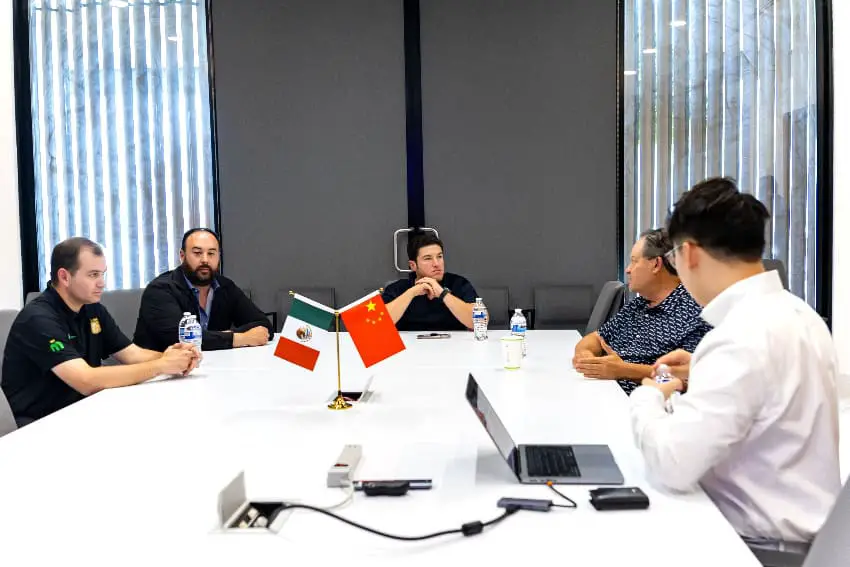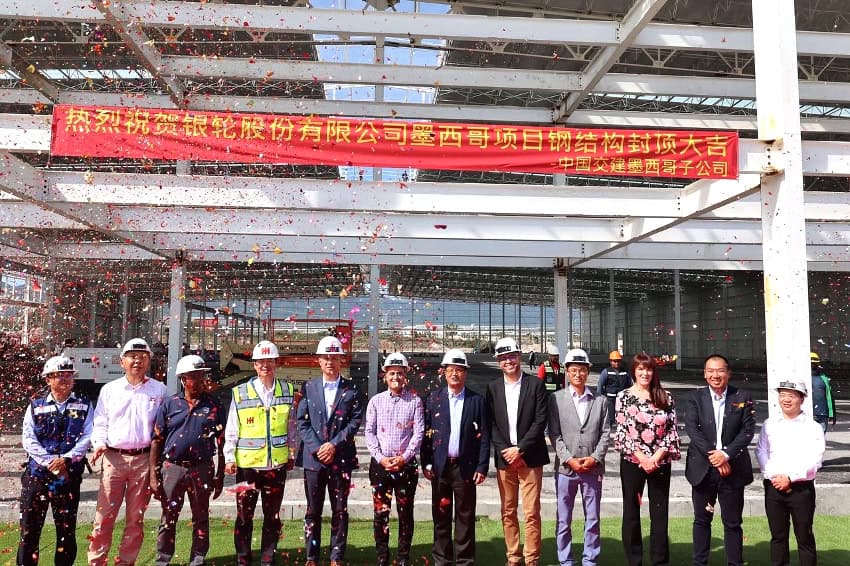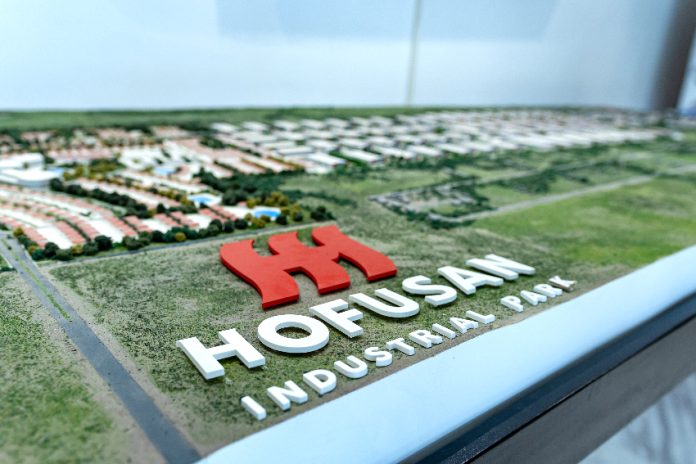The Chinese and Mexican-owned Hofusan Industrial Park has plans to invest US $1 billion to expand its facilities north of Monterrey, Nuevo León, according to a statement by Governor Samuel García.
“The company has informed me that they have already invested over US $1 billion, and they plan to continue expanding with an additional US $1 billion,” García posted on his X account on Saturday, along with a video taken at the company’s facilities.

Furthermore, García said Hofusan Industrial Park has plans to develop an area of hotels, housing and shopping malls.
“New roads, new outposts and the remodeling of the Colombia-Laredo customs office has attracted large companies from around the world to invest in Nuevo León,” García said.
César Santos, the president of the board of Hofusan Industrial Park, added that they are “very grateful” to García’s government for having improved the access road to the park, which went from being “a rural road to a four-lane highway.”
Developed by the Chinese companies Holley Group and Futong Group along with the Mexican Santos family in 2017, Hofusan Industrial Park occupies an area of 8.47 square kilometers located 20 km north of Monterrey — about 200 km from Laredo, Texas.

The industrial park currently houses 40 businesses and is projected to eventually include 100 industrial buildings.
Some of the park’s largest companies include Hong Kong-based furniture manufacturer Manwah and Chinese home appliance manufacturer Hisense. The park also houses manufacturers in the auto parts and automotive industry.
Nuevo León was the third biggest recipient nationwide of the announced FDI during the first six months of 2024, accounting for 9% of the total. Some recent big announcements include U.S. software giant Oracle’s plans to bring a hyperscale cloud region to Nuevo León, and Chinese Boda International Holding Group’s plan to invest US $850 million to build smart homes as part of a community development program.
Nuevo León’s ability to attract FDI is due in part to the efforts of Governor García, who is entering the second half of his term and has made attracting nearshoring companies a priority.
A study by the Mexican Institute for Competitiveness (IMCO) and the Friedrich Naumann Foundation for Freedom (FNF) found that Nuevo León is among the best-prepared states in Mexico to accommodate nearshoring investments, along with Aguascalientes and Coahuila.
With reports from El Economista
